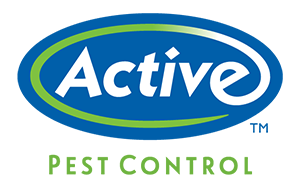We’ve had a lot of wet weather recently. Have you noticed? Whether you’ve noticed the weather or not, mosquitoes sure noticed it. Let’s take a look at how foul weather makes more foul mosquitoes, and explore a couple of things we can do about them.
What happens when it rains? If your answer was, “It gets wet,” congratulations, you’re exactly right. Rain makes stuff wet. And, if the sun doesn’t dry that rainwater up, mosquitoes take advantage of it. Here are a few examples:
- If you have an area of your yard that gets a lot of shade, there is a greater chance that you’ll have puddles that won’t dry up shortly after it rains. Mosquitoes will use those puddles to lay their eggs and produce more mosquitoes in your yard.
- If you have objects in your yard that collect rainwater such as toys, a tarp, stacked construction materials, or the top of a parked vehicle, you have the conditions for mosquitoes to breed.
- If you have a gutter that is obstructed by sticks and leaves, this will act as a dam. The water held up by that tiny dam will be more than enough for mosquitoes to breed in.
- If you have hard ground, concrete, or some other firm surface that holds puddles for longer than a day, that could be long enough for mosquito eggs to hatch.
More rain makes all of the above a breeding ground for mosquitoes. It also makes the wooded, shaded areas, more of a breeding ground as well. If you live near a swamp, you probably don’t notice when there are more mosquitoes than usually but folks who live in relatively dry areas sure do. Mosquitoes take quick advantage of still, stagnant water.
Is there anything we can do? Yup! We don’t have to put up with all those mosquitoes. Here are four important things you need to know about mosquitoes:
- The average mosquito doesn’t travel more than 300 yards in its entire life. If you’re getting mosquito bites in your backyard, those mosquitoes probably didn’t travel very far to bite you.
- When you have breeding sites controlled or treated, you reduce the number of mosquitoes that will breed in your yard.
- When you have the vegetation in your yard treated for mosquitoes, you will be destroying mosquitoes that would have bred in your neighbor’s yard.
- When you reduce mosquitoes on your property, you are also reducing the number of mosquitoes that would have come back into your yard after breeding in your neighbor’s yard.
Don’t let the foul weather make your yard or your neighborhood a mosquito paradise. Get ongoing mosquito reduction service from a professional, and stop the cycle.

